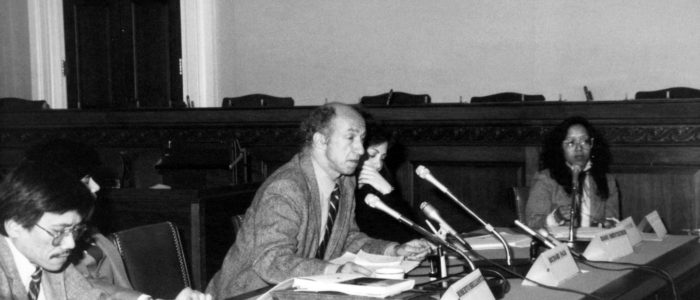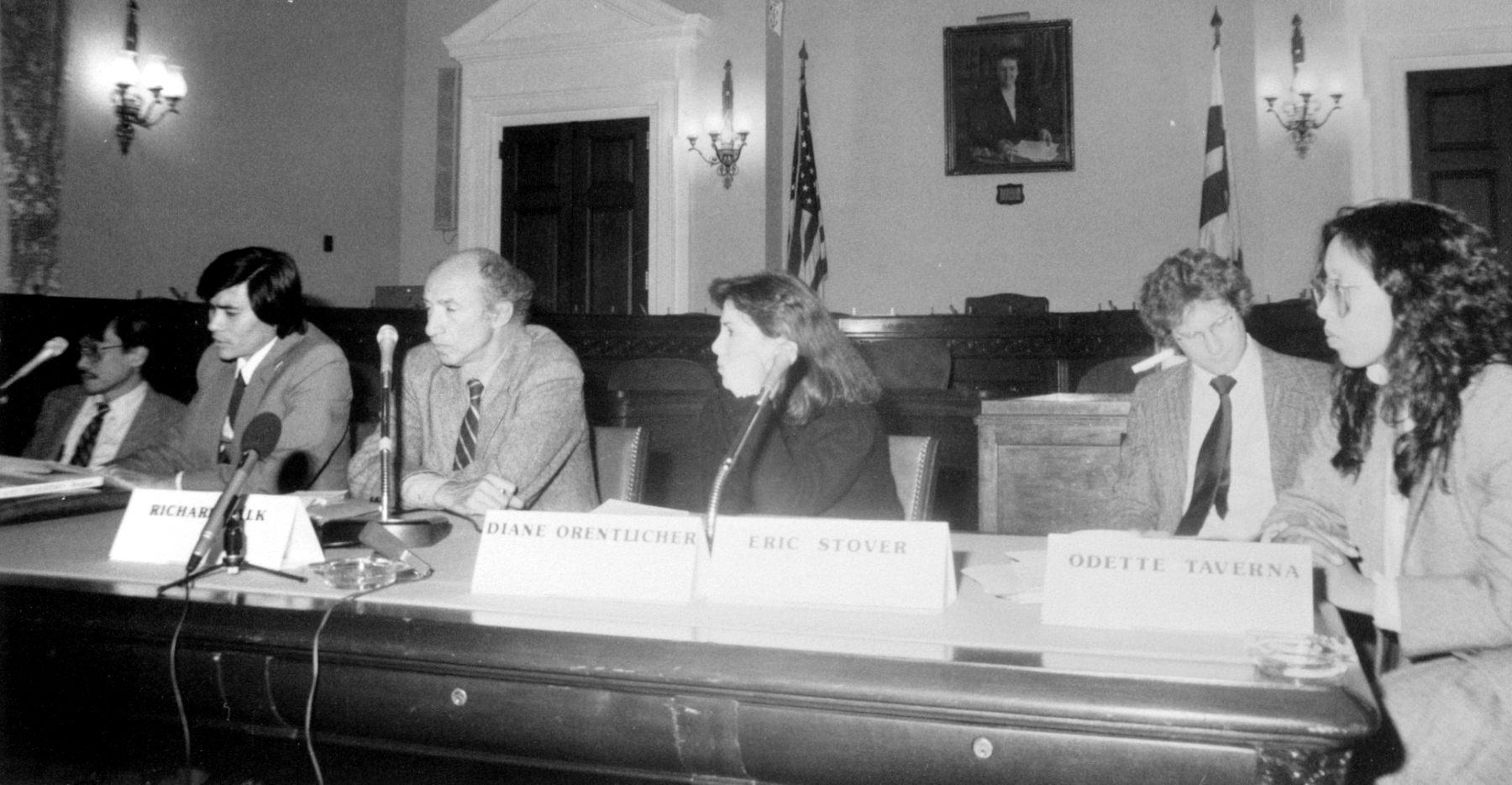
Lobbying Against the Marcos Regime in Congress
Political, military and economic support from the U.S. was critical to the sustenance of the unpopular Marcos regime. A critical role of Filipino opposition to Marcos in the United States, was to educate the American people and Congress about the corruption and brutality of the dictatorship and to stop US aid to Marcos.

KDP’s Congress Task Force (CTF) testified at Congressional hearings, visited the offices of members of Congress, provided them with updates and briefing materials, and issued joint statements with U.S. Representatives and Senators.
The task force also published a monthly newsletter, the CTF Bulletin, which provided timely analysis of critical developments in the Philippines during the dictatorship.
At the end of the regime, it became apparent that these efforts were successful as the US stood aside as the Filipino people drove the Marcos’ into exile and ended their regime.
Lobbying in Congress
The Congress Task Force, led by its Director Odette Taverna (right), participates in a congressional hearing on November 10, 1981 to condemn a proposed extradition treaty between the United States and the Philippines. In denouncing the treaty, CAMD national co-coordinator Walden Bello (left) said that “support for repression abroad inevitably leads to repression at home.” Also testifying against the treaty are Dr. Richard Faulk (third from left), professor of International Law at Princeton University and a supporter of FFP; and Diane Orentlicher, a human rights activist who served as the Deputy for War Crimes Issues in the U.S. Department of State (2009-2011).
